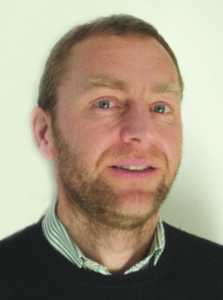 Saul Miller is a GP in Belford, Northumberland
Saul Miller is a GP in Belford, Northumberland
We’re beings with finite existence. In that limited time, few ever make a lasting difference to our world. But those few cumulatively raise the collective game. There is much to appreciate from this for those of us who would prefer to leave behind the hunter-gatherer life. And yet my youthful belief in the march of human progress still wanes.
Take obesity. We know it is a major cause of illness and disability.1 We know there is a relationship between access to fast food outlets and rates of obesity.2 We know that deprivation and obesity rates are significantly linked from childhood on.3 During the Covid-19 pandemic, it turned out that obesity was also a major risk factor for death from that novel coronavirus.3 And yet as much as a coherent national policy on the topic might seem obvious, a whole-system approach even within the NHS does not yet exist.4
In the surgery, patients still express the hopelessness of their lived reality: lives built around sitting; exercise options that are difficult to access geographically and financially; and the cheapest food options too often the ‘wrong’ choices. Exercise support options come and go but are always limited. Dietary support is simply not available unless you are already diabetic.
And yet as much as a coherent national policy on the topic might seem obvious, a whole-system approach even within the NHS does not yet exist.
We could of course take other topics and detail similar patterns: alcohol and drug abuse, physical activity levels, smoking, cancer, and so on.5 All patterns linked to the level of socioeconomic disadvantage of those involved.6 And all involving disjointed policy, not the least of which is policy around public health medicine.7 But the point is this: that the underlying inconsistency is driven by controversy about how much of individual behaviour should be in scope for policy at all, and how much is simply an issue of liberty and free will.8
I have left out of that analysis the question of how much influence does big business have on government policy. Insofar as the emphasis repeatedly comes back to liberty and free will, this would seem to support concerns that the answer may be ‘too much’.9
After all the popular support during Covid-19 pandemic, the NHS is in turmoil. The pandemic is one factor but added to it are the twin pressures of inflation and industrial action. In the midst of this is another major reorganisation, with the shift to Integrated Care Systems. At primary care level, we are facing the end of the 5 year Primary Care Network (PCN) contract in a year’s time and no one yet knows what follows.
As usual though, the top-line idea is not so important as the absent detail of how it will be implemented.
The idea promoted by Clare Fuller, of Integrated Neighbourhood Teams (INTs), seems to have political currency.10 As usual though, the top-line idea is not so important as the absent detail of how it will be implemented. Although population health management was made a responsibility of PCNs, regulation and targets (never mind the small matter of a pandemic) have given little space for this. Will even that flicker survive reorganisation?
I recently found out about a problem facing medical students recruited as part of the ‘widening participation in medicine’ agenda.11 It turns out that the NHS generously pays their final year tuition fees but they have no access to a student loan for the rest, only a £1000 grant and a means-tested bursary of up to £2643 to cover a year’s living and accommodation costs.12
This reminded me of a paper about the inverse relationship between the distribution of English GPs and socioeconomic inequalities in health.13 Encouragingly, it concluded things had improved substantially in the decade up to 2014. I wonder what’s happened since?
Much changes in the world but progress is not inevitable.14
References
- Public Health England. Sugar reduction. The evidence for action. 2015. https://assets.publishing.service.gov.uk/government/uploads/system/uploads/attachment_data/file/470179/Sugar_reduction_The_evidence_for_action.pdf (accessed 8 Mar 2023).
- Fraser LK, Edwards KL The association between the geography of fast food outlets and childhood obesity rates in Leeds, UK. Health Place 2010; 16(6): 1124—1128.
- Moore JB, Evans CEL. Obese and hungry: two faces of a nation. BMJ 2020; 370: m3084
- Holmes J. Tackling obesity. The role of the NHS in a whole-system approach. The King’s Fund, 2021. https://www.kingsfund.org.uk/sites/default/files/2021-07/Tackling%20obesity.pdf (accessed 8 Mar 2023).
- Black D, Morris J, Smith C, Townsend P. Inequalities in Health: report of a Working Party. (Also known as the Black Report). London: Department of Health and Social Security, 1980.
- Marmot M, Allen J, Boyce T, et al. Health equity in England. The Marmot review 10 years on. London: Institute of Health Equity, 2020. https://www.health.org.uk/sites/default/files/upload/publications/2020/Health%20Equity%20in%20England_The%20Marmot%20Review%2010%20Years%20On_full%20report.pdf(accessed 8 Mar 2023).
- Hunter DJ, Littlejohns P, Weale A. Reforming the public health system in England. The Lancet Public Health 2022; 7(9): e797—e800.
- Levitsky DA, Pacanowski CR. Free will and the obesity epidemic. Cambridge: Cambridge University Press, 2011. https://www.cambridge.org/core/journals/public-health-nutrition/article/free-will-and-the-obesity-epidemic/D8BF9F2E357EBA976896AE6A8B356B8B (accessed 8 Mar 2023).
- Innes A. Corporate state capture: the degree to which the British state is porous to business interests is exceptional among established democracies. LSE British Politics and Policy 2021; 16 Apr: https://blogs.lse.ac.uk/politicsandpolicy/corporate-state-capture/(accessed 8 Mar 2023).
- Next steps for integrating primary care: Fuller stocktake report. NHS England, 2022. https://www.england.nhs.uk/publication/next-steps-for-integrating-primary-care-fuller-stocktake-report/ (accessed 8 Mar 2023).
- BMA. Widening participation in medicine 2023. https://www.bma.org.uk/advice-and-support/studying-medicine/becoming-a-doctor/widening-participation-in-medicine (accessed 8 Mar 2023).
- NHS. NHS Bursary funding for medical and dental students 2020/21. 2020. https://www.nhsbsa.nhs.uk/sites/default/files/2020-06/NHS%20Bursary%20Funding%20for%20Medical%20and%20Dental%20Students%202020-21%20%28V1%29%2006%202020.pdf (accessed 8 Mar 2023).
- Asaria M, Cookson R, Fleetcroft R, Ali S. Unequal socioeconomic distribution of the primary care workforce: whole-population small area longitudinal study. BMJ Open 2016; 6: e008783. (Over the period 2004/5 to 2013/4 the inequality of physician supply between the most deprived and least deprived areas significantly reduced).
- Quote attributed to Carl Sagan
Featured photo: Footprint in the sand, by Andrew Papanikitas 2022






